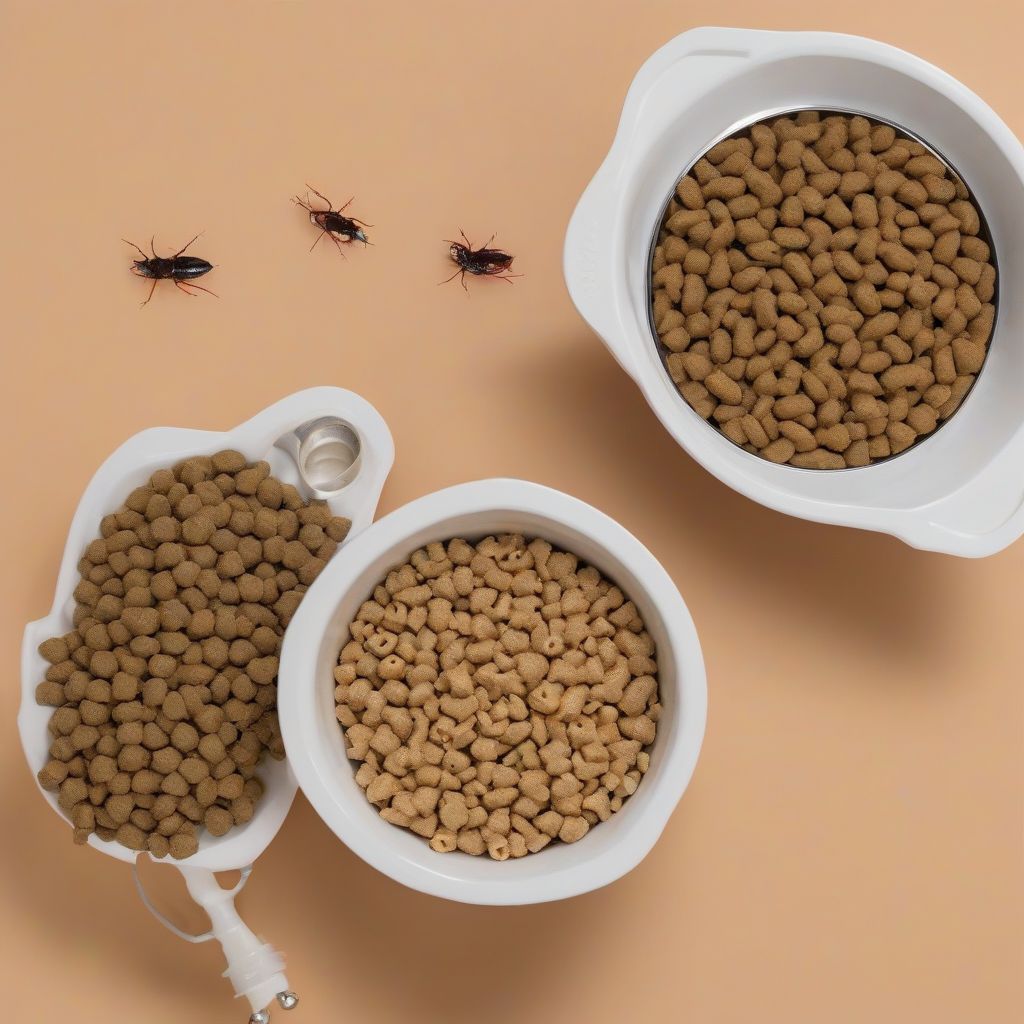As a pet parent, you want the best for your furry friend. You want them to thrive, live a long and healthy life, and that starts with good nutrition. But with so many pet food options on the market, it can be overwhelming to choose one that’s both healthy and fits your budget. And with growing concerns about the environmental impact of our choices, you might also be wondering how to make a sustainable choice for your pet’s food.
Balancing cost and sustainability might seem tricky, but it’s entirely possible. It’s about understanding your options and making informed choices. In this guide, we’ll explore how to make the best decisions for your pet, your wallet, and the planet.
Understanding the True Cost of Pet Food
We often associate “cheap” with saving money, but when it comes to pet food, the cheapest option isn’t always the most economical. Low-quality ingredients mean less nutritional value, leading to potential health issues and even increased vet bills down the line.
Let’s break down what influences pet food costs:
1. Ingredient Quality: High-quality protein sources, healthy fats, fruits, and vegetables, come at a cost. These ingredients are more digestible and provide superior nutrition compared to fillers and by-products often found in cheaper brands.
2. Sourcing & Manufacturing: Ethically sourced ingredients, sustainable farming practices, and responsible manufacturing processes often contribute to a slightly higher price tag. But they also reflect a company’s commitment to quality and ethical practices.
3. Brand Recognition: Like any other product, well-known brands often come with a higher price tag. While they might offer good quality, don’t discount lesser-known brands that prioritize quality ingredients and sustainable practices.
Sustainable Pet Food: What Does it Really Mean?
Sustainability in pet food goes beyond just the ingredients. It’s about considering the entire lifecycle of the product:
1. Ingredient Sourcing: Look for brands that prioritize sustainably sourced ingredients:
- Responsibly Farmed Protein: Look for certifications like “Global Animal Partnership” or “Certified Humane” that indicate better animal welfare standards.
- Sustainable Seafood: Choose brands using seafood certified by the Marine Stewardship Council (MSC) to ensure responsible fishing practices.
- Plant-Based Options: Consider incorporating insect-based protein or pet food brands that utilize a higher percentage of plant-based ingredients to reduce their environmental footprint.
2. Packaging: Choose brands using recyclable packaging or those actively reducing their packaging waste.
3. Manufacturing Practices: Support companies with transparent and ethical manufacturing processes that minimize their environmental impact.
Balancing Act: Practical Tips for Choosing Pet Food
Finding that sweet spot between affordability, nutrition, and sustainability doesn’t have to be complicated. Here are some actionable steps to guide you:
1. Read the Label, Do Your Research: Don’t judge a pet food by its packaging alone. Flip it over and read the ingredient list. Look for:
- Whole protein sources (chicken, beef, fish) listed as the first few ingredients.
- Avoid by-products, fillers, artificial colors, flavors, and preservatives.
- Research brands: Check their websites for information about their sourcing, manufacturing, and sustainability initiatives.
2. Consider Your Pet’s Needs:
- Life stage: Puppies, adults, and senior dogs have different nutritional needs. Choose a formula tailored for their age.
- Breed size and activity level: Active breeds or larger dogs may require food with higher calorie content.
- Allergies or sensitivities: If your pet has dietary restrictions, look for specialized formulas.
3. Don’t Be Afraid to Experiment:
- Every pet is different. What works for one might not work for another.
- Introduce new foods gradually to avoid digestive upset.
- Monitor your pet’s health, energy levels, and coat condition after switching to a new food.
4. Talk to Your Vet:
- Your veterinarian is your best resource for personalized advice on your pet’s nutritional needs.
- They can recommend brands and formulas based on your pet’s specific health and dietary requirements.
5. Think Outside the Traditional Kibble Box:
- Explore alternative protein sources like insect-based pet food. Insects are a sustainable and highly nutritious protein source.
- Consider incorporating fresh, whole foods into your pet’s diet.
 Sustainable Pet Food Options
Sustainable Pet Food Options
6. Buy in Bulk (Responsibly):
- Purchasing larger bags of pet food can often save you money in the long run.
- However, only buy what your pet will consume before the expiration date to avoid waste.
7. Look for Sales and Discounts:
- Subscribe and save options from online retailers or pet stores can offer significant discounts.
- Stock up on your pet’s favorite food when you find a good deal.
8. Consider Homemade Options (With Caution):
- Preparing your pet’s food at home can be cost-effective and allow you to control the ingredients.
- However, it’s crucial to consult with a veterinary nutritionist to ensure you’re meeting all of your pet’s nutritional needs with a balanced homemade diet.
[amazon bestseller=”sustainable dog food”]
Making a Difference, One Bowl at a Time
Choosing sustainable and healthy pet food doesn’t require a complete lifestyle overhaul. It’s about making conscious choices that align with your values and your pet’s well-being. By understanding the factors that influence cost and sustainability, reading labels carefully, and considering your pet’s individual needs, you can provide your furry friend with the best possible nutrition while minimizing your impact on the environment. Every small step towards sustainability counts – for you, your pet, and the planet we share.
Do you have any tips or tricks for finding affordable and sustainable pet food options? Share your thoughts and experiences in the comments below!
